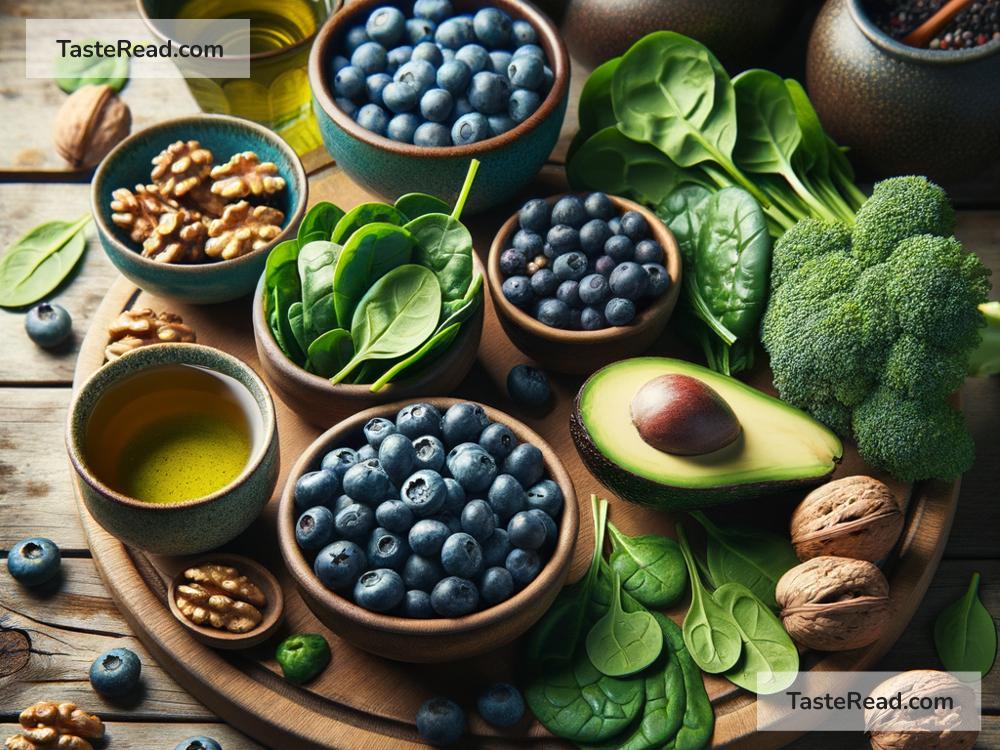Foods That Help Reduce Oxidative Stress
Oxidative stress is a term you’ve probably heard but might not completely understand. It’s a process that happens inside your body when there’s an imbalance between free radicals and antioxidants. Free radicals are unstable molecules that can damage your cells. Antioxidants, on the other hand, are like little protectors that help keep free radicals in check. When there are too many free radicals and not enough antioxidants, oxidative stress occurs, leading to inflammation and possibly long-term problems like heart disease, diabetes, and even aging-related issues.
The good news is that your diet can play a big role in reducing oxidative stress! Many foods are packed with antioxidants, vitamins, and minerals that can help keep your body healthy. In this article, we’ll explore some delicious and easy-to-find foods that fight oxidative stress and support your overall health.
1. Berries: Tiny but Mighty
Berries like blueberries, strawberries, and raspberries are one of the best foods for reducing oxidative stress. They contain high levels of antioxidants called flavonoids and anthocyanins. These compounds help neutralize free radicals, reducing cell damage.
Blueberries are especially famous for their health benefits. They have something called “polyphenols,” which are powerful antioxidants that protect your body from oxidative stress. You can add berries to your breakfast, toss them into smoothies, or enjoy them as snacks.
2. Dark Leafy Greens: Nature’s Superfoods
Vegetables like spinach, kale, and Swiss chard are packed with antioxidants, vitamins, and minerals. Dark leafy greens are rich in vitamins A, C, and E—all of which are great for combating oxidative stress.
Spinach contains lutein and zeaxanthin, two antioxidants that help protect your eyes from free radical damage. Kale, on the other hand, is loaded with vitamin C, which supports your immune system. Eating a salad with these greens or blending them into a green smoothie is an easy way to boost your health.
3. Nuts and Seeds: Small and Powerful
Nuts and seeds are rich in antioxidants, healthy fats, and vitamin E, making them excellent for reducing oxidative stress. Almonds, walnuts, sunflower seeds, and flaxseeds are good choices.
Vitamin E is especially important because it protects your cells from damage caused by free radicals. Walnuts also contain omega-3 fatty acids, which help reduce inflammation. Snack on a handful of nuts, sprinkle seeds over your yogurt, or add them to oatmeal for a tasty boost.
4. Green Tea: A Calming Superdrink
Green tea is one of the healthiest drinks you can choose. It’s loaded with a type of antioxidant called catechins, which are known for their ability to combat oxidative stress.
The special thing about green tea is its simplicity—it’s low-calorie and easy to prepare. Drinking one or two cups of green tea daily can support your body’s antioxidant defenses and even promote relaxation.
5. Colorful Vegetables: Eat the Rainbow
Vegetables like carrots, bell peppers, sweet potatoes, and tomatoes aren’t just pretty—they’re also amazing for your health. Their bright colors aren’t just for show; they’re a sign of their high antioxidant content.
Tomatoes contain lycopene, an antioxidant that fights oxidative stress and supports heart health. Carrots are packed with beta-carotene, which is converted into vitamin A in your body and supports your immune system. Aim to include a mix of colorful vegetables in your meals—it’s both visually appealing and great for your health.
6. Citrus Fruits: Vitamin C Heroes
Oranges, lemons, grapefruits, and other citrus fruits are loaded with vitamin C, one of the most powerful antioxidants. Vitamin C not only fights free radicals but also supports your skin, immune system, and overall health.
Sipping on a glass of fresh orange juice or adding lemon to your water can be simple ways to boost your antioxidant intake. Citrus fruits are also great for snacking or adding to salads.
7. Dark Chocolate: A Sweet Treat
Yes, you read that right! Dark chocolate is considered healthy (in moderation, of course). Cocoa contains antioxidants called flavonoids, which help reduce oxidative stress, improve blood circulation, and support heart health.
Make sure to choose chocolate that contains at least 70% cocoa for maximum benefits. A small square of dark chocolate after a meal can be a guilt-free treat that’s also good for you.
8. Fatty Fish: Brain and Body Booster
Fatty fish like salmon, mackerel, and sardines are rich in omega-3 fatty acids, which reduce inflammation and oxidative stress in the body. They also support brain health and heart health.
Try to include fatty fish in your weekly meals. Grilled salmon or a fish taco can be a delicious and nutritious way to protect your body from oxidative stress.
Why Does It Matter?
Reducing oxidative stress isn’t just about avoiding health problems—it’s also about feeling good in your daily life. When you eat antioxidant-rich foods, your body gets the support it needs to fight off damage, keep your immune system strong, and stay energized.
Final Tips
To lower oxidative stress, it’s important to combine good eating habits with a healthy lifestyle. Try to get enough sleep, exercise regularly, and avoid smoking or excessive alcohol consumption. Every small step counts!
Making antioxidant-rich foods part of your diet doesn’t have to be hard. Many of these foods—like berries, leafy greens, nuts, and citrus fruits—are readily available and easy to enjoy. Start adding them to your meals today, and help your body stay strong, healthy, and free from oxidative stress!


